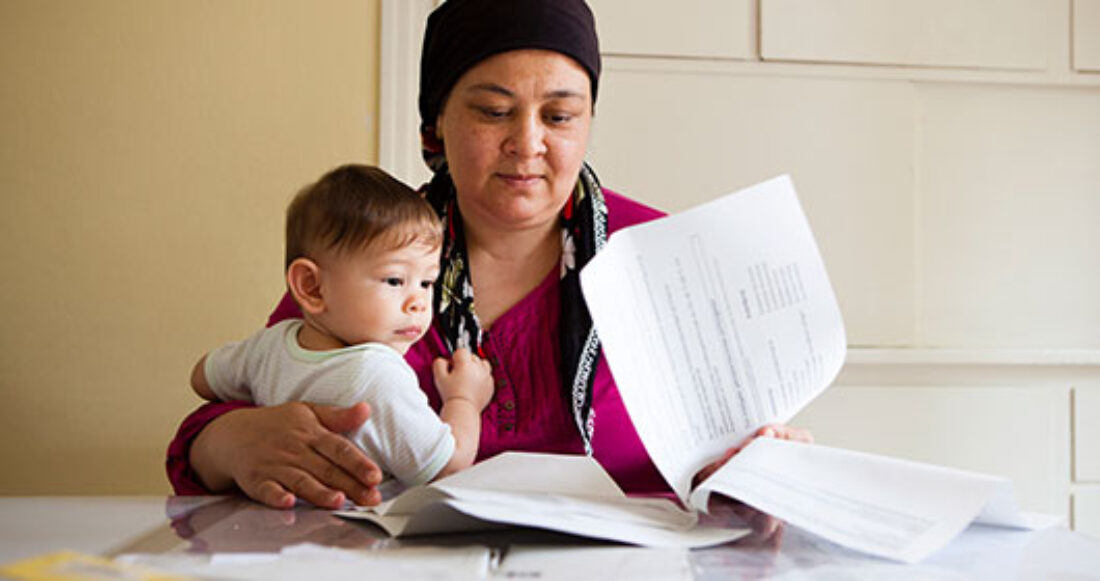Our Statement on Executive Actions on Immigration

As the creators and leaders of tomorrow, all children are vital to our country’s growth, prosperity and well-being. This includes 18 million children and youth who are sons and daughters of immigrants or are immigrants themselves. The Annie E. Casey Foundation’s mission is to ensure that all children in the United States have a bright future. A bright future requires that all young people and their families have access to resources that will help them thrive. They deserve policies that keep families together and allow them to flourish, communities that support them and systems that protect them.
Recent administrative actions could derail the future and threaten the well-being of nearly a quarter of our young people who are living in immigrant families. The vast majority of those 18 million children and youth, most of them children and youth of color, are American citizens, but at least 5 million have parents who do not have legal status. Although it’s unclear how extensive enforcement activities will be, the recent executive order lowered the bar on what is considered a “chargeable offense,” effectively making all unauthorized immigrants subject to deportation.
As a result, more children will face the wrenching prospect of being separated from their parents or being forced to leave their homes for a country that is not their own. Decades of child development research have documented that children experience many detrimental effects when they are separated from their families – increased risks of psychological and emotional problems, risks of poor health outcomes and risks to their normal development. These setbacks compromise their ability to reach their full potential and their ability to contribute to our country’s prosperity. Research shows that living with at least one parental figure is integral to a child’s healthy development and continues to confer benefits that contribute to his success throughout life. Children become withdrawn or extremely anxious after a parent is deported, making it difficult for them to attend school, perform in class or interact with peers. In addition, the absence of a parent who is the main source of income frequently sends families into a spiral of financial insecurity.
Our grantees in communities across the country are witnessing firsthand the consequences of these developments. Many are struggling with how best to ensure that parents feel safe enough to bring their children to school or to doctor’s appointments, to go to work or attend religious services. We are concerned about the effects that existing and proposed executive actions may have on access to early care and education, health and nutrition services and other income-stabilizing support for children of immigrant parents. Although low-income immigrants are less likely to use public benefits than the native born, more severe restrictions could have damaging effects on the health and well-being of millions of children who are entitled to these services.
At the Casey Foundation, we also recognize the burden these actions place on systems that support children and families. We know that child welfare systems across the country are already struggling to provide safe, nurturing foster homes for the hundreds of thousands of children removed from their families due to abuse and neglect. Adding hundreds of thousands of additional children left alone due to deportations would overwhelm these systems, at great cost, and put their essential mission of protecting abused children at risk.
As a Foundation that is focused on improving outcomes for children and ensuring racial and ethnic equity, we are supporting organizations that are engaged in protecting immigrant families from harmful policy decisions. For many of our partners in city and county government, universities and schools, the executive orders threaten a cut in federal funding. These “sanctuary places” refuse to use local police to engage in deportation activities or to allow immigration enforcement activities in their classrooms or university grounds in an effort to prioritize the best interests of children. Communities, schools and churches that seek to support immigrant children and parents should be allowed to do so without fear of retribution.
We know that there are critical policy conversations unfolding as our leaders consider the best ways to protect and strengthen our country. The Foundation is partnering with its grantees to educate decision makers so that the interests of children in immigrant families are considered. Based on what we know from research and experience, we hope that policymakers will make every effort to ensure that children and youth can stay with their families in the communities they call home.






